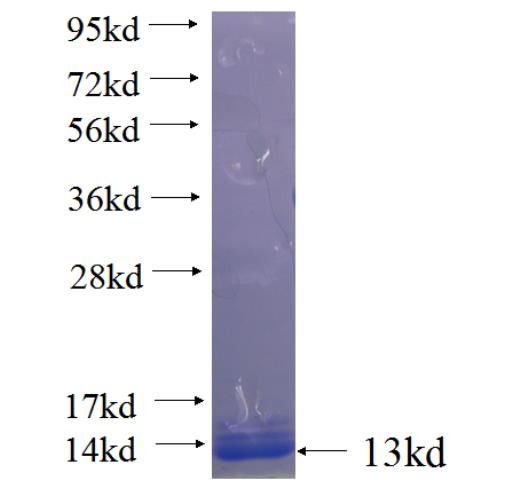-
Product Name
Human PIM2 Recombinant protein (His tag)
- Documents
-
Description
Proto-oncogene with serine/threonine kinase activity involved in cell survival and cell proliferation. Exerts its oncogenic activity through: the regulation of MYC transcriptional activity, the regulation of cell cycle progression, the regulation of cap-dependent protein translation and through survival signaling by phosphorylation of a pro-apoptotic protein, BAD. Phosphorylation of MYC leads to an increase of MYC protein stability and thereby an increase transcriptional activity. The stabilization of MYC exerted by PIM2 might explain partly the strong synergism between these 2 oncogenes in tumorigenesis. Regulates cap-dependent protein translation in a mammalian target of rapamycin complex 1 (mTORC1)-independent manner and in parallel to the PI3K-Akt pathway. Mediates survival signaling through phosphorylation of BAD, which induces release of the anti-apoptotic protein Bcl-X(L)/BCL2L1. Promotes cell survival in response to a variety of proliferative signals via positive regulation of the I-kappa-B kinase/NF-kappa-B cascade; this process requires phosphorylation of MAP3K8/COT. Isoform 1 is less active in this respect. Promotes growth factor-independent proliferation by phosphorylation of cell cycle factors such as CDKN1A and CDKN1B. Involved in the positive regulation of chondrocyte survival and autophagy in the epiphyseal growth plate. {PubMed:18593906, PubMed:18675992, PubMed:20307683}.
-
Protein name
Serine/threonine-protein kinase pim-2
-
Uniprot ID
Q9P1W9
-
Gene Name
PIM2
-
Source/Expression Host
E. coli
-
Expression Plasmid/cDNA
A DNA sequence encoding the human PIM2 (NP_006866.2) 240-311 aa was fused with the polyhistidine tag
-
Protein Species
Human
-
Activity
Not tested.
-
Validations

Recombinant human PIM2 SDS-PAGE
Related Products / Services
Please note: All products are "FOR RESEARCH USE ONLY AND ARE NOT INTENDED FOR DIAGNOSTIC OR THERAPEUTIC USE"
